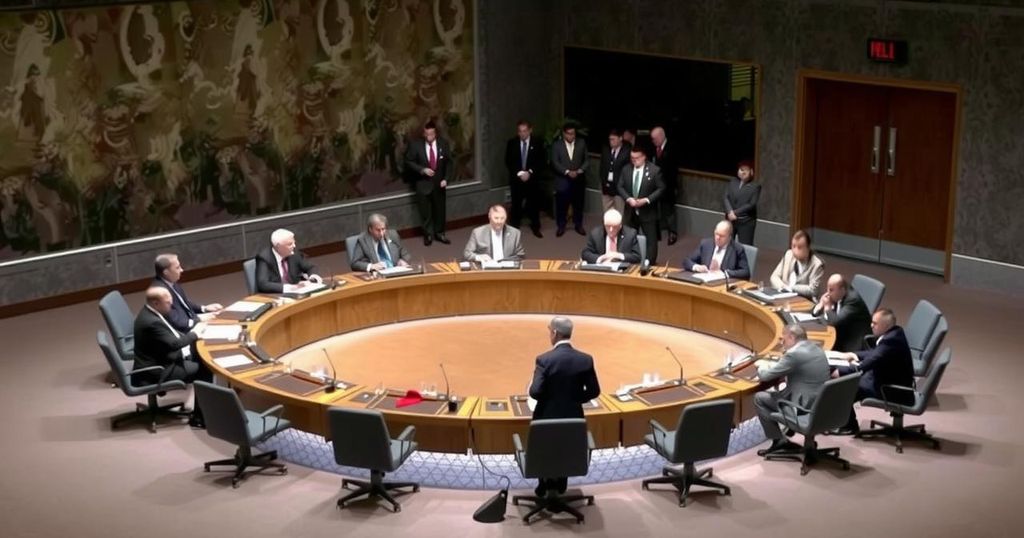Pakistan Starts Two-Year Term as Non-Permanent Member of UN Security Council

Pakistan has begun its two-year term as a non-permanent member of the United Nations Security Council, following its election in June 2022. This marks the eighth time Pakistan has held this position. The role will provide Pakistan the opportunity to address terrorism issues, particularly those linked to Afghanistan, and highlight regional security threats while seeking to influence the UN agenda.
Pakistan has officially commenced its two-year tenure as a non-permanent member of the United Nations Security Council (UNSC). Following its election in June 2022, Pakistan takes over Japan’s seat representing the Asia-Pacific region as of January 1, 2023. In a recent ceremony held on January 2, the flags of the newly elected non-permanent members, including Pakistan, Denmark, Greece, Somalia, and Panama, were raised, marking the beginning of their terms. Asim Iftikhar Ahmed, Pakistan’s Additional Permanent Representative to the UN, attended this significant event.
This marks the eighth occasion that Pakistan has participated as a member of the Security Council. Its position allows Pakistan not only to influence the global agenda but also to serve on the Islamic State (IS) and Al-Qaeda Sanctions Committee. This committee plays a pivotal role in identifying individuals and groups affiliated with these terrorist organizations and enforcing relevant sanctions. Media reports suggest that Pakistan aims to leverage this platform to address concerns regarding cross-border terrorism emanating from Afghanistan, particularly emphasizing threats posed by groups affiliated with IS and al-Qaeda.
Furthermore, Pakistan’s role within the UNSC will likely enable it to articulate the national security challenges it faces, particularly the threats from the Tehreek-e-Taliban Pakistan, while also seeking to highlight geopolitical concerns in the context of India’s actions in Jammu and Kashmir. There is an expectation that Pakistan will utilize its membership to exert pressure on the Afghan Taliban regarding its policies and affiliations. Pakistan’s term at the UN Security Council will conclude on December 31, 2026.
The United Nations Security Council is one of the six principal organs of the United Nations and is responsible for maintaining international peace and security. The Council comprises 15 members, including five permanent members with veto power and ten non-permanent members elected for two-year terms. The non-permanent members are crucial for bringing forward issues from various regions of the world, contributing to agenda-setting, and providing diverse perspectives on international security matters. Pakistan’s repeated engagements with the UNSC reflect its strategic efforts to assert its interests on a global platform and have historically linked to issues of terrorism and regional security, particularly relating to Afghanistan and India.
In summary, Pakistan’s ascension to the United Nations Security Council represents a significant opportunity to influence international discussions on terrorism and regional security concerns. With its membership, Pakistan is positioned to advocate for its interests related to cross-border terrorism and the geopolitical dynamics in South Asia while contributing to the collective efforts of the Council to maintain global peace and security. As its term progresses until December 2026, Pakistan’s actions and proposals will be closely monitored by the international community.
Original Source: www.afintl.com








